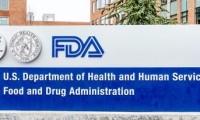-
“The leader of narcotics” in China, the actual controller may change hands
- Source: https://mp.weixin.qq.com
- 99
- October 3, 2024
-
A Rehearsal for Overcoming AIDS
- Source: https://caifuhao.eastmoney.com/news/20240925115315100512370?from=guba&name=5YyW5a2m5Yi26I2v5ZCn&gubaurl=aHR0cHM6Ly9ndWJhLmVhc3Rtb25leS5jb20vbGlzdCxiazA0NjUsOTksai5odG1s
- 71
- October 1, 2024
-
What Are Its Treatment Prospects?
- Source: drugdu
- 85
- September 30, 2024
-
The second half of the battle to defend the Medicine King
- Source: drugdu
- 85
- September 30, 2024
-
US judge denies initial attempt by Novartis to block generic Entresto launch
- Source: drugdu
- 68
- August 15, 2024
-
ICRA
- Source: drugdu
- 137
- March 30, 2024
-
FDA Approves Sandoz Biosimilars for Two Blockbuster Amgen Bone Drugs
- Source: drugdu
- 134
- March 7, 2024
-
February 23, 2024
- Source: drugdu
- 86
- February 27, 2024
-
US Senate committee interrogates big pharma on “outrageously high” drug prices
- Source: https://www.pharmaceutical-technology.com/news/us-senate-committee-interrogates-big-pharma-on-outrageously-high-drug-prices/?cf-view
- 287
- February 15, 2024
-
FDA and EMA team up to expedite complex generic drug development
- Source: drugdu
- 116
- February 8, 2024
your submission has already been received.
OK
Subscribe
Please enter a valid Email address!
Submit
The most relevant industry news & insight will be sent to you every two weeks.













